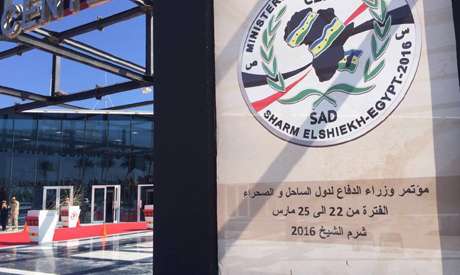The Community of Sahel-Saharan States is one of the eight regional economic groupings recognized by the African Union that are the pillars of integration on the continent and of sustainable economic and social development in Africa.
The Community of Sahel-Saharan States (SS) consists of 25 African countries bordering the Sahara or the Sahel region. It was established on February 4, 1998 in Tripoli (Libya).
Establishing a comprehensive economic union based on a strategy in accordance with a development plan that complements the national development plans of the countries concerned, and includes investment in the agricultural, industrial, energy, social and cultural fields.
Removing all restrictions that hinder the gathering of these countries by taking the necessary measures and procedures to ensure the following:
- Free movement of persons, capital and interests of citizens of member states;
- Freedom of residence, property and economic activity;
- Free trade and movement of goods, products and services between the signatory countries;
- Encouraging foreign trade through an investment policy in member states;
- Increasing the means of land, air and sea transport and communications between Member States;
- Recognition of the citizens of member countries with the same rights, benefits and duties granted to their own citizens in accordance with the provisions of their respective constitutions;
- Harmonizing the educational, educational, scientific and cultural systems in the various training courses.
The revised Community Treaty, adopted on February 13, 2013, and entered into force in 2019, identifies strengthening regional security and sustainable development as key priorities.
A new structure for the Executive Secretariat was also adopted. The new management team of the Executive Secretariat consists of:
Executive Secretary, Mr. Ibrahim Sani Abani (Niger), Assistant Executive Secretary, Mr. Abderrahim Kadiri (Morocco).
Noting that the reform measures were left to the specialized bodies and agencies. In addition, in 2019, the assembly added an anti-terror center based in Egypt to its apparatus.
The work of the the Community of Sahel–Saharan States depends on five main organs, namely: the Conference of Heads of State and Government (the Presidency Council), which meets once a year, where its presidency is rotating, and it holds its meetings on a rotating basis in the various capitals of the member states.
It has observer status in the United Nations system under Resolution A/RES/56/92 of the United Nations General Assembly.
Moreover, the Assembly concluded partnership agreements with many regional and international organizations in order to implement joint projects in many fields (political, cultural, economic and social).
In accordance with the instructions of the Heads of State and Government of the Community to take appropriate measures to reduce insecurity and terrorism in the Sahel-Saharan region, a framework document on security and development strategy was drawn up.
The Community of Sahel–Saharan States' Development Strategy, which is in line with the African Union's Agenda 2063, constitutes a set of exceptional measures whose implementation, in the short and medium term, will enable the solution of the most targeted problems.
This document aims to embody the new vision of the revised Treaty of SS Caucus in its component on security and development into concrete actions on the ground.
These measures will be transformed into projects and programs that can be implemented in all parts of the Sahel-Saharan Community. The effective implementation of these projects and programs will be able to curb the state of insecurity and terrorism and combat drug trafficking, given that "there is no security without development and no development without security."
This implementation will take place through a five-year plan (2021-2025), whose strategic objectives are as follows:
- put an end to current conflicts;
- Eliminating terrorism;
- stop transnational organized crime;
- bridging the gap in education by using new technologies;
- Addressing the issue of energy and electricity;
- Providing economic opportunities for women and youth;
- Encouraging the free movement of people and goods.
- Rural Development Strategy:
- addressing the issue of access to water;
- Solving food security problems by encouraging family farming and sustainable agribusiness.
In keeping with the implementation of the revised treaty, a five-year program will be adopted and implemented in the near future through sectoral projects and programmes.
This action plan and its components will enable the improvement of the human development index in order to achieve the sustainable development goals by 2030.
This will include, in particular, support for education and school involvement in rural areas, promotion of new and renewable energies, reforestation campaigns, support for the completion of the Great Green Wall, support for the Lake Chad Basin Commission project to save Lake Chad, and support for major programs of the African Union supported by the Agency for Development of the African Union (NEPAD), such as:
- African Continental Free Trade Area;
- Comprehensive Africa Agricultural Development Program;
- Africa Infrastructure Development Program;
- "Silencing the Voice of Weapons by 2020" program.
The Community of Sahel-Saharan States will also seek to align its activities with those of other multilateral actors and to strengthen its partnership with them.
https://see.news/egypt-embraces-cen-sad-anti-terrorism-center/













